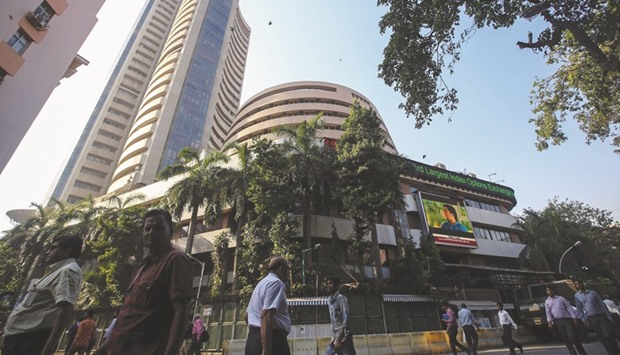Pyongyang on Sunday claimed that it had successfully tested a hydrogen bomb — by far its most powerful test — that can be loaded on to an intercontinental ballistic missile, sparking global alarm and drawing UN condemnation. Most Asian markets reacted with fear and saw frenzied selling. Europe too turned shaky.
Underpinned by nervousness, the benchmark Sensex lost 189.98 points, or 0.60%, to close at 31,702.25, spooked by the surcharged atmosphere after North Korea’s nuclear tests. The Nifty went below the 9,900 mark intra-day, but just recovered in time to settle at 9,912.85, still down 61.55 points, or 0.62%.
“The North Korean impasse did curtail risk appetite, especially with markets looking for cues to further the uptrend.
Markets will, however, take positive cues from the Cabinet reshuffle done over the weekend, which holds potential for economic reforms reaching the ground level, with less than two years before general elections,” said Anand James, chief market strategist, Geojit Financial Services.
Investors went for booking profit that in part explained the weakness, traders said. They turned to safe haven assets such as gold, silver, Treasury futures and Japanese yen amid the spike in global tensions.
The rupee reversed its early gains against the US dollar in afternoon trade on exit of foreign capital.
Adani Ports, the biggest loser in the Sensex map, Infosys, Airtel, HDFC Bank and Hindustan Unilever all fell up to 2.6%. The key indices were also affected by losses in Hindustan Unilever, Hero MotoCorp, Asian Paints, Tata Motors and Bharti Airtel, which fell by up to 1.94%.
Railway-related stocks were in the spotlight as Piyush Goyal became the new Railway Minister after the Cabinet reshuffle. The elevation sparked gains in BEML, Titagarh Wagons, Texmaco Rail, Stone India and Kernex Microsystems, jumping up to 4.76%.
Foreign portfolio investors (FPIs) net diluted shares worth Rs832.81 crore on Friday. Domestic institutional investors (DIIs) kept faith in India story, making purchases worth of Rs731.72 crore, showed provisional data. In keeping with the overall trend, mid- and small-cap indices declined.
The BSE realty index slipped the most losing 1.39%. Similar weakness was witnessed in IT, technology and banking indices.
Meanwhile the rupee yesterday weakened against the US dollar as global markets fell after North Korea’s test of a nuclear bomb on Sunday.
The rupee closed at 64.05 a dollar, down 0.04% from its Friday’s close of 64.03. The rupee opened at 63.93 a dollar and touched a high and a low of 63.93 and 64.18 respectively.
The 10-year bond yield closed at 6.493%, compared to its previous close of 6.483%. Bond yields and prices move in opposite directions.
So far this year, the rupee has gained 6.1%, while foreign institutional investors (FIIs) bought $7.16bn and $19.89bn in equity and debt markets, respectively.
Asian currencies were trading lower. South Korean won was down 0.61%, Indonesian rupiah 0.14%, Malaysian ringgit 0.09%, Thai baht 0.08%, Taiwan dollar 0.06% and Philippines peso fell 0.05%.
However, Japanese yen was up 0.42%, China offshore 0.19% and China renminbi 0.16%.
The dollar index, which measures the US currency’s strength against major currencies, was trading at 92.653, down 0.18% from its previous close of 92.814.
On Friday, non-farm payrolls rose by 156,000, below the median estimate of 180,000, in a Bloomberg survey of economists, and revisions for the prior two months subtracted 41,000 job.

